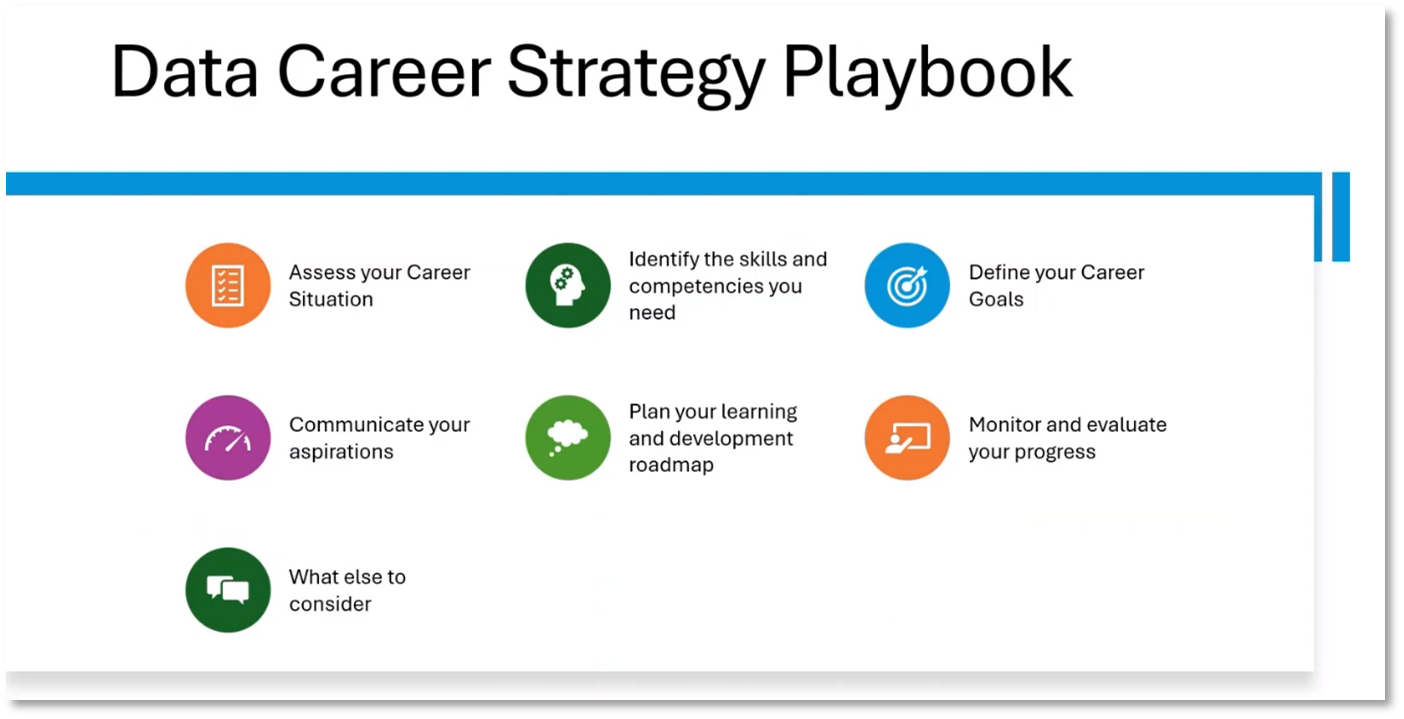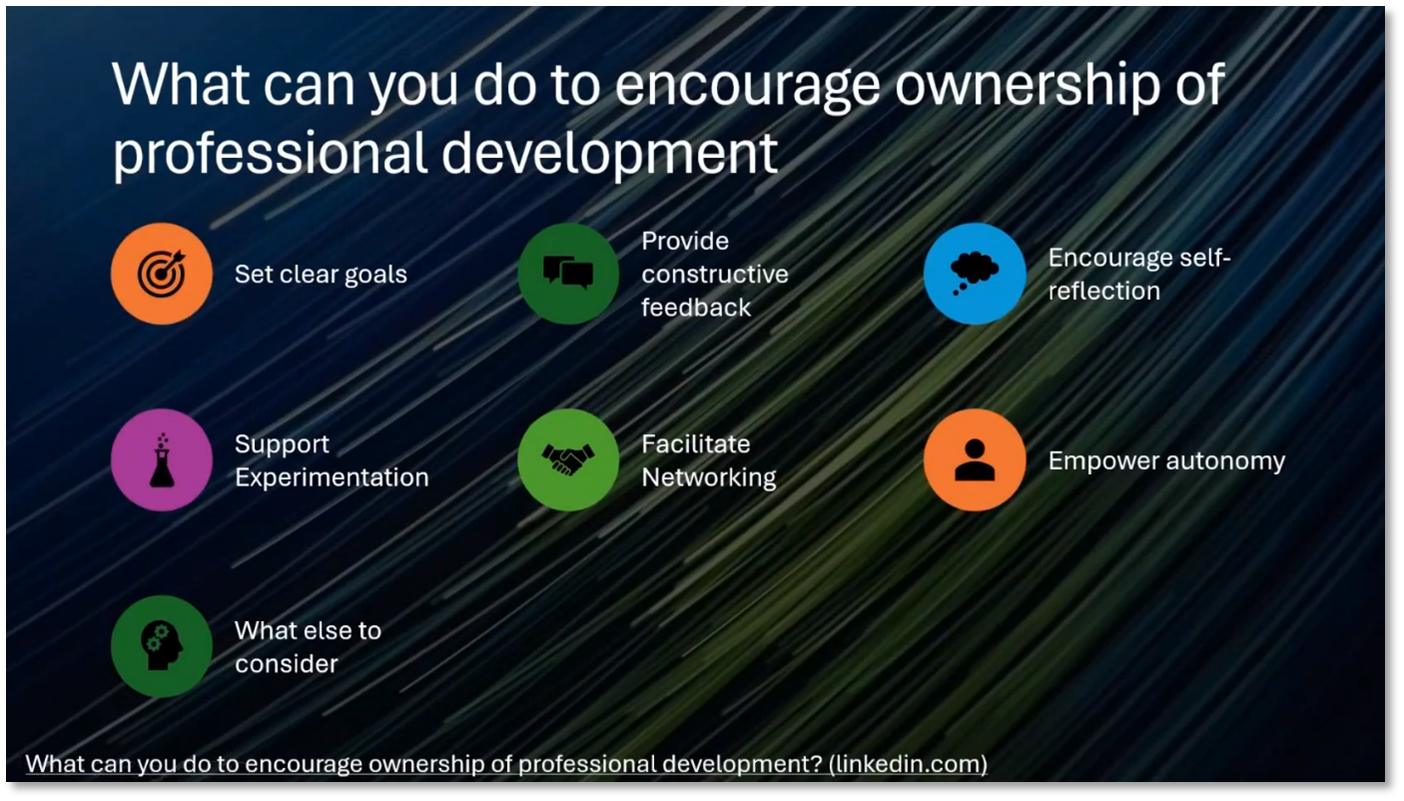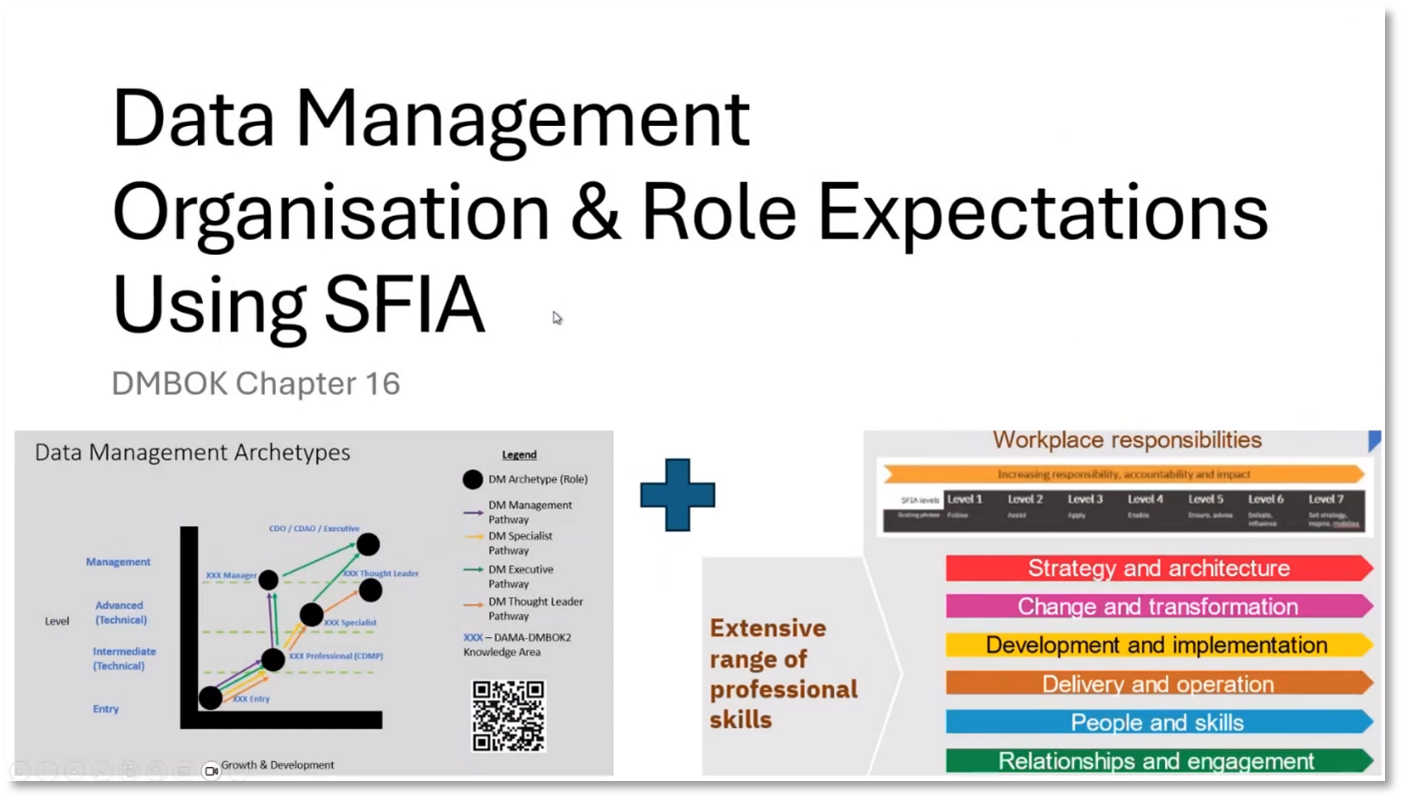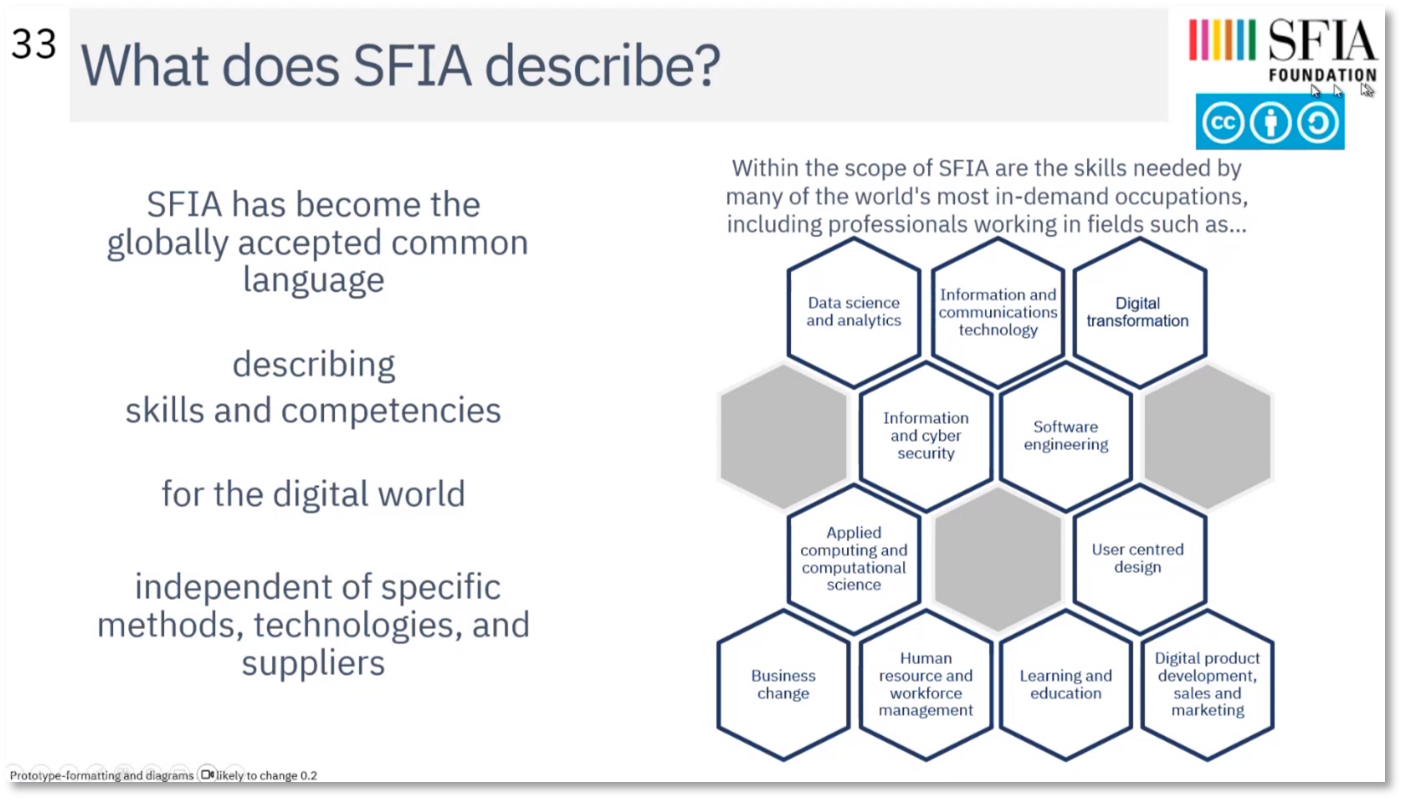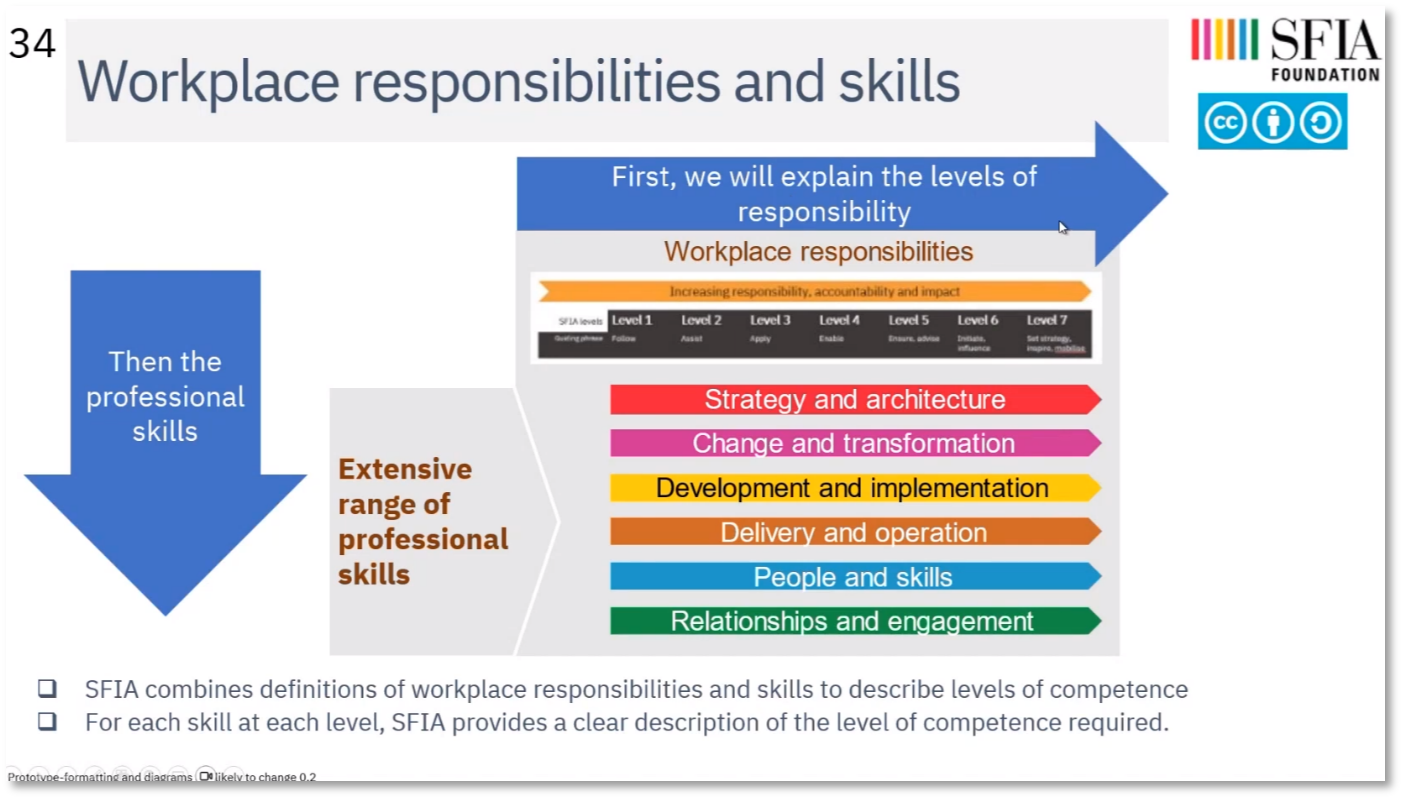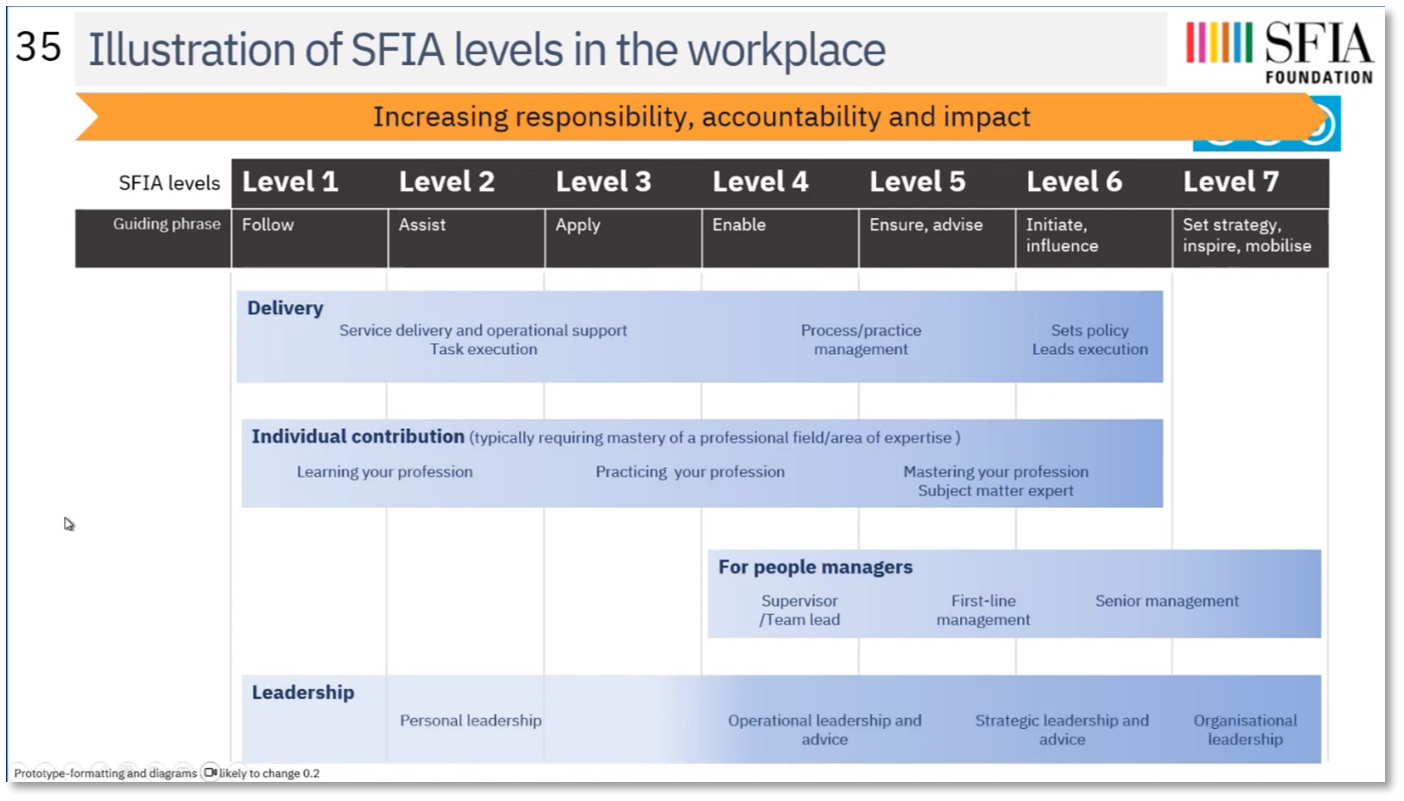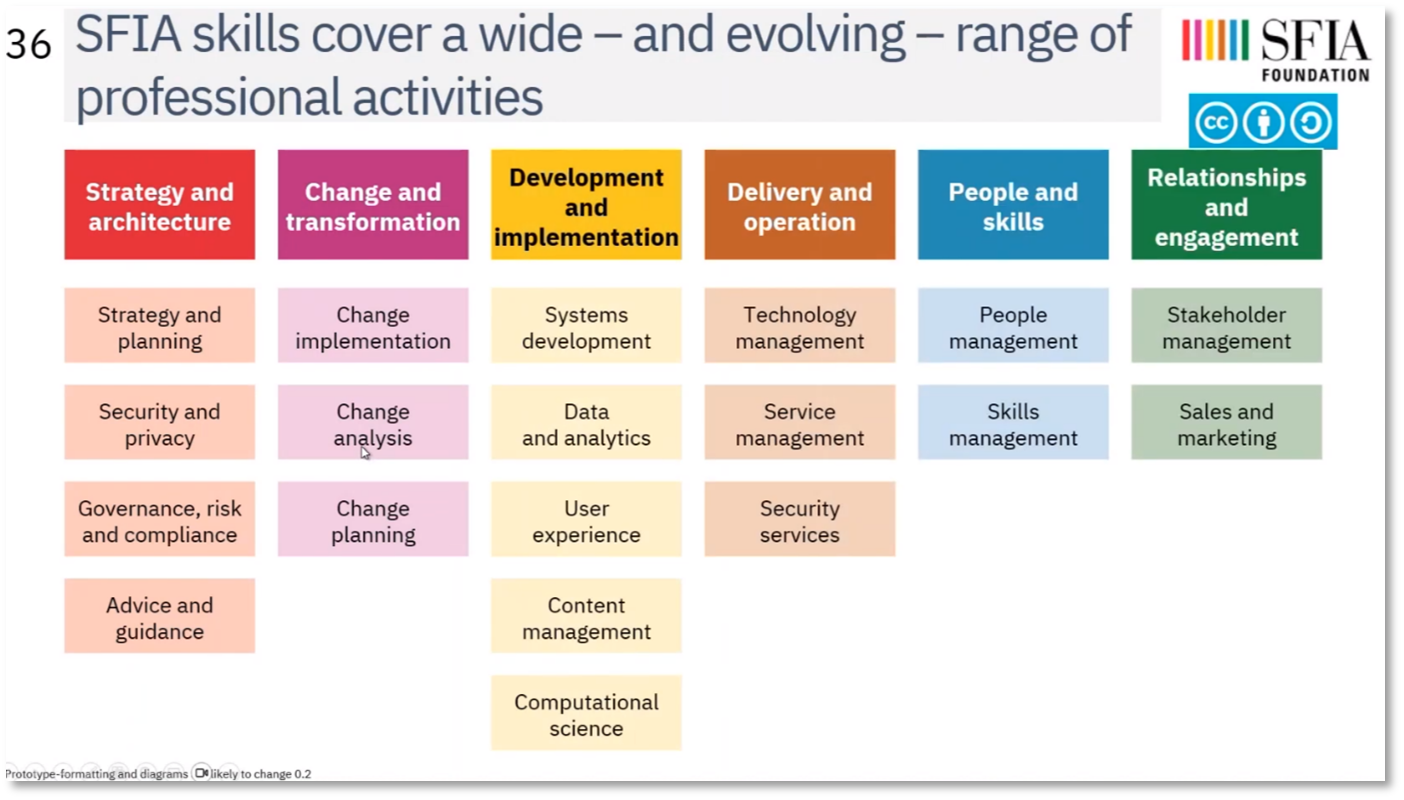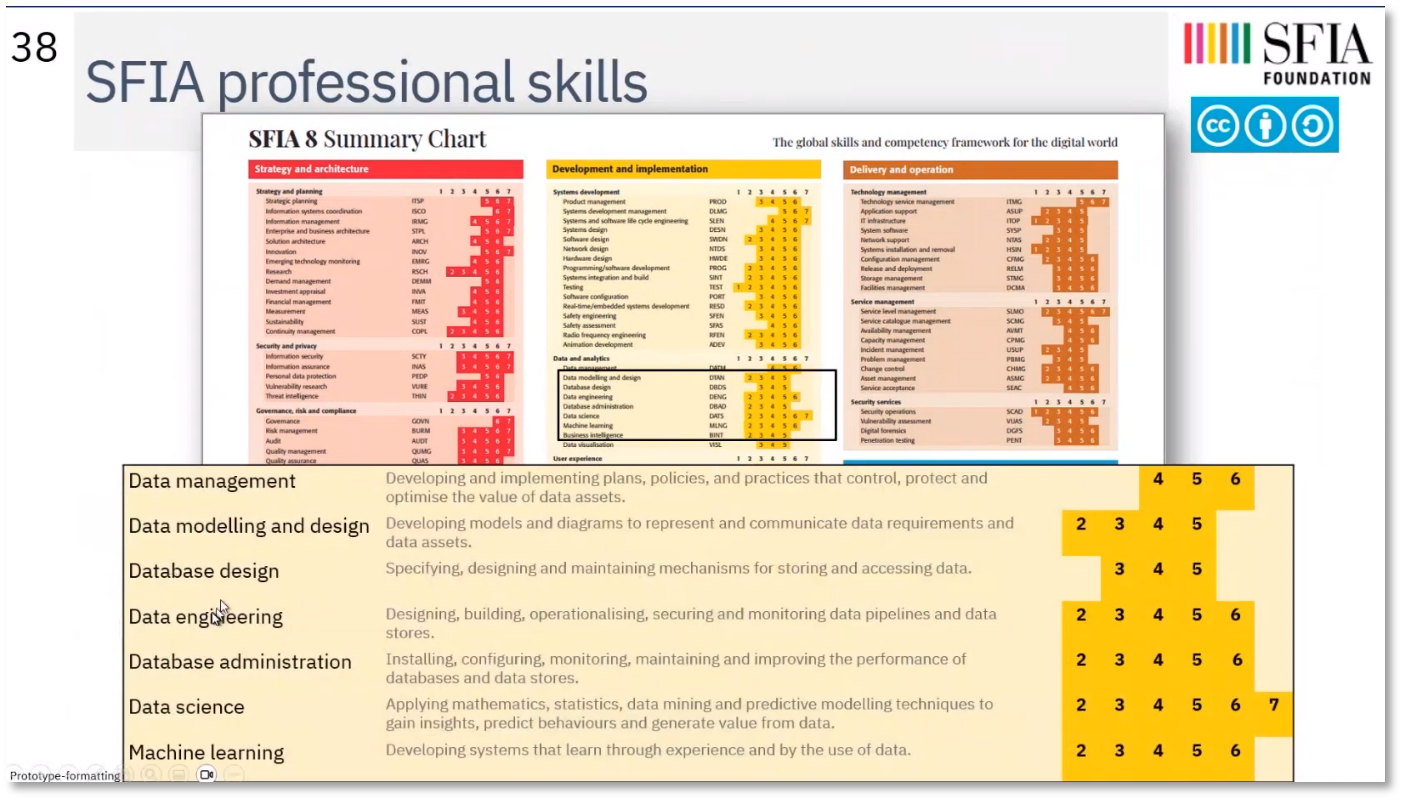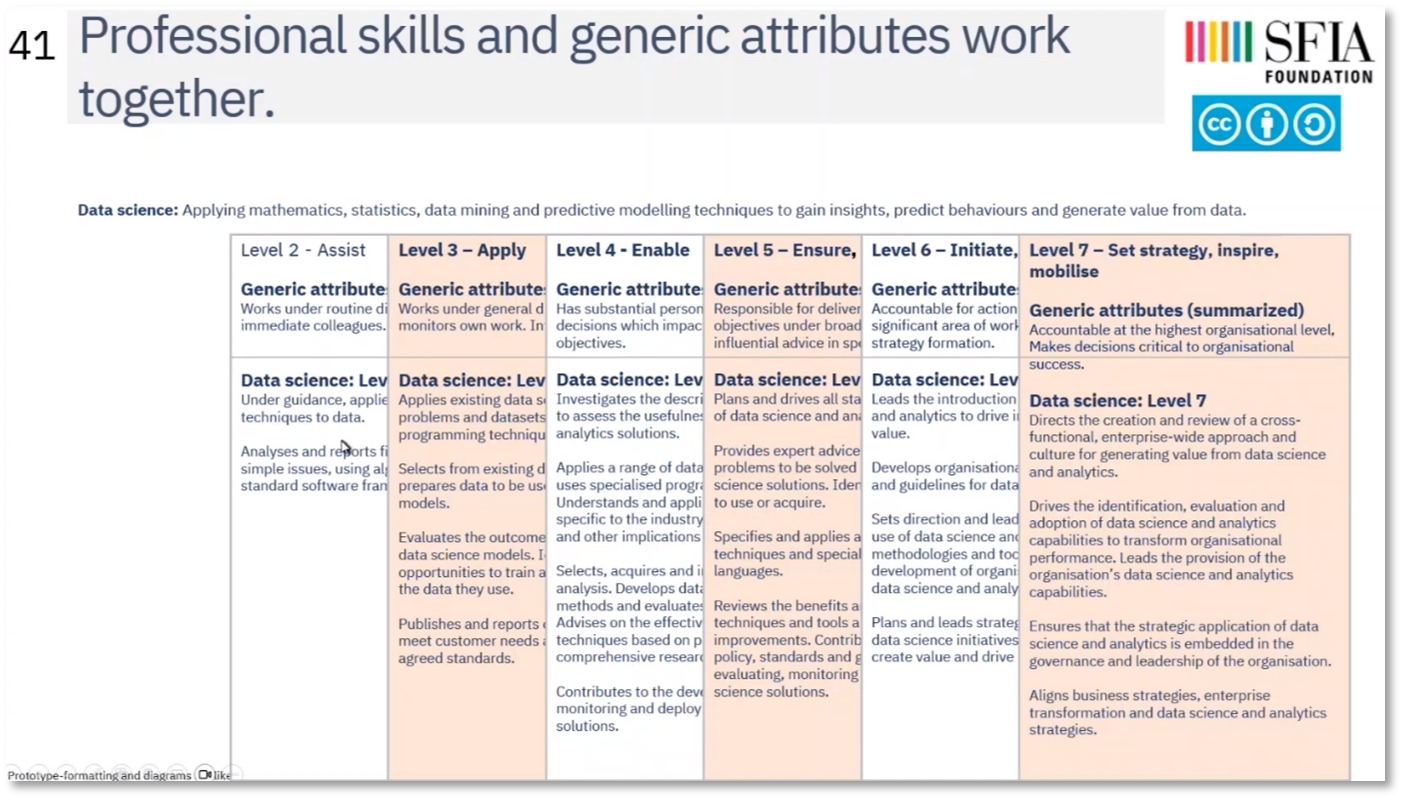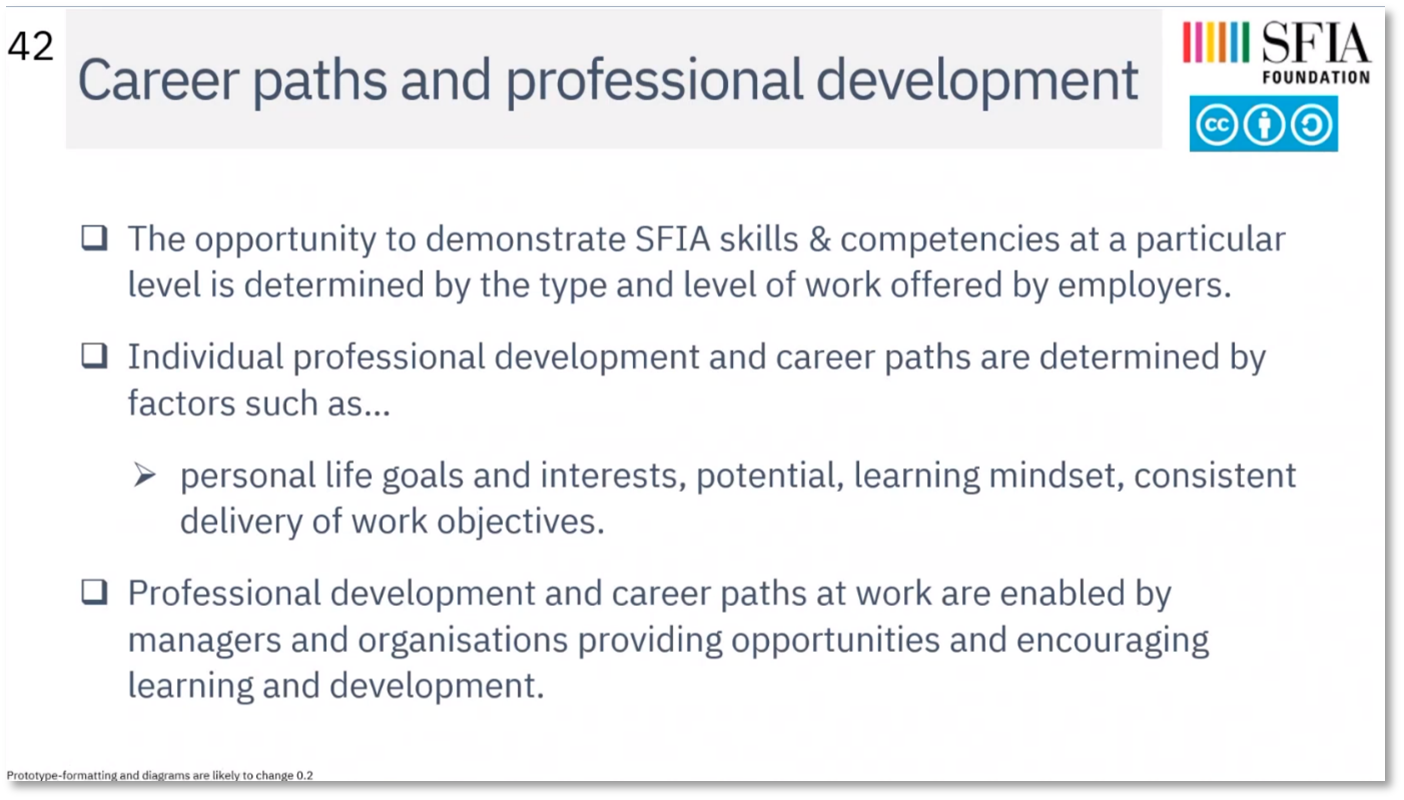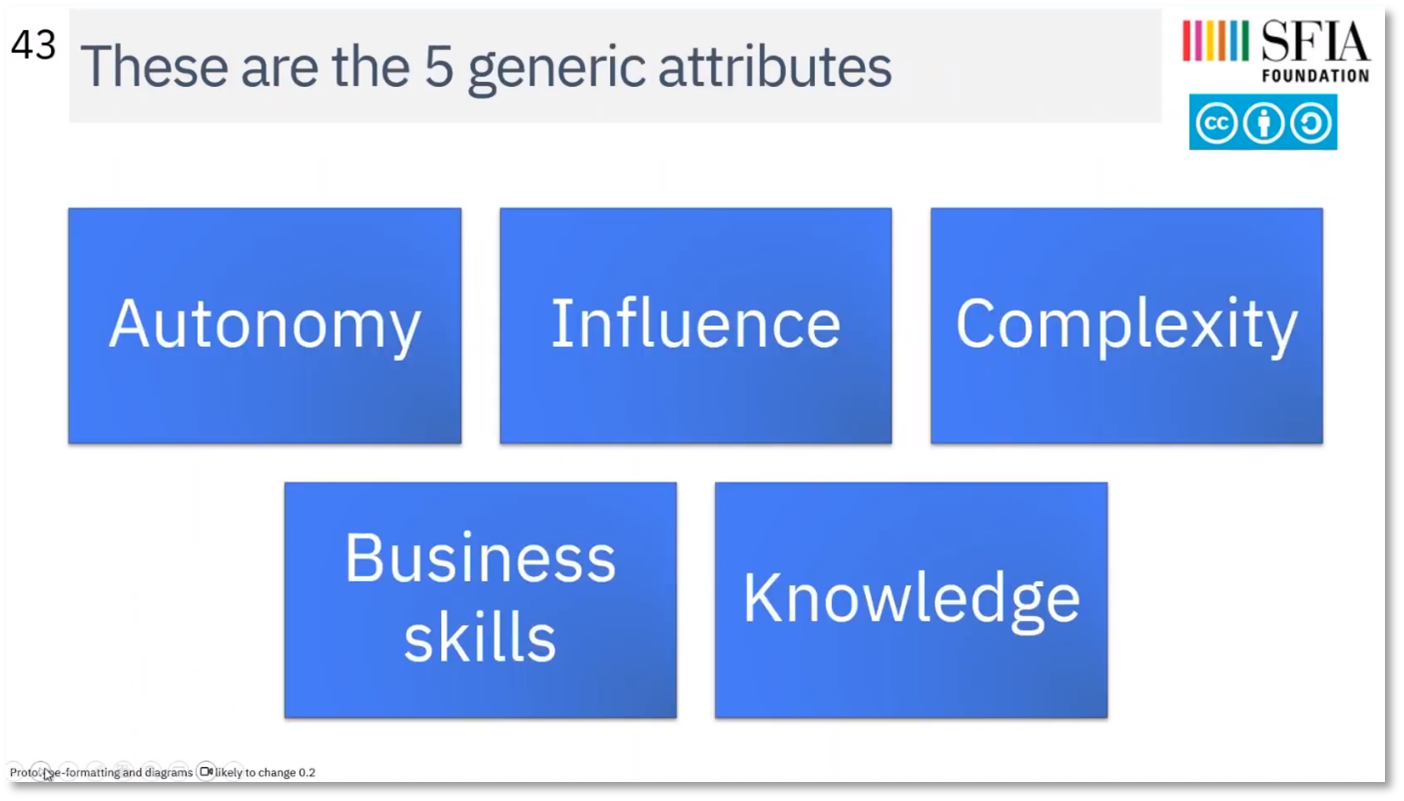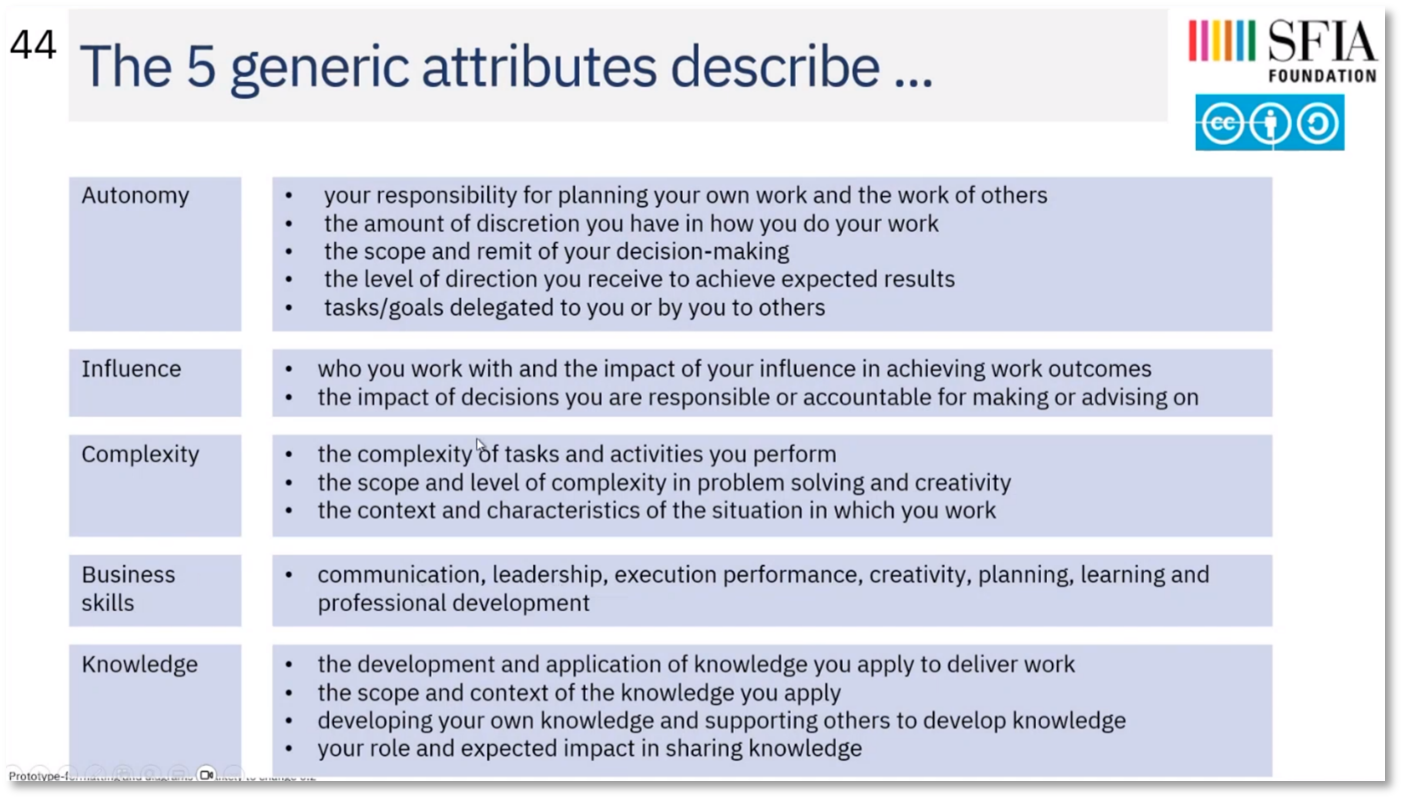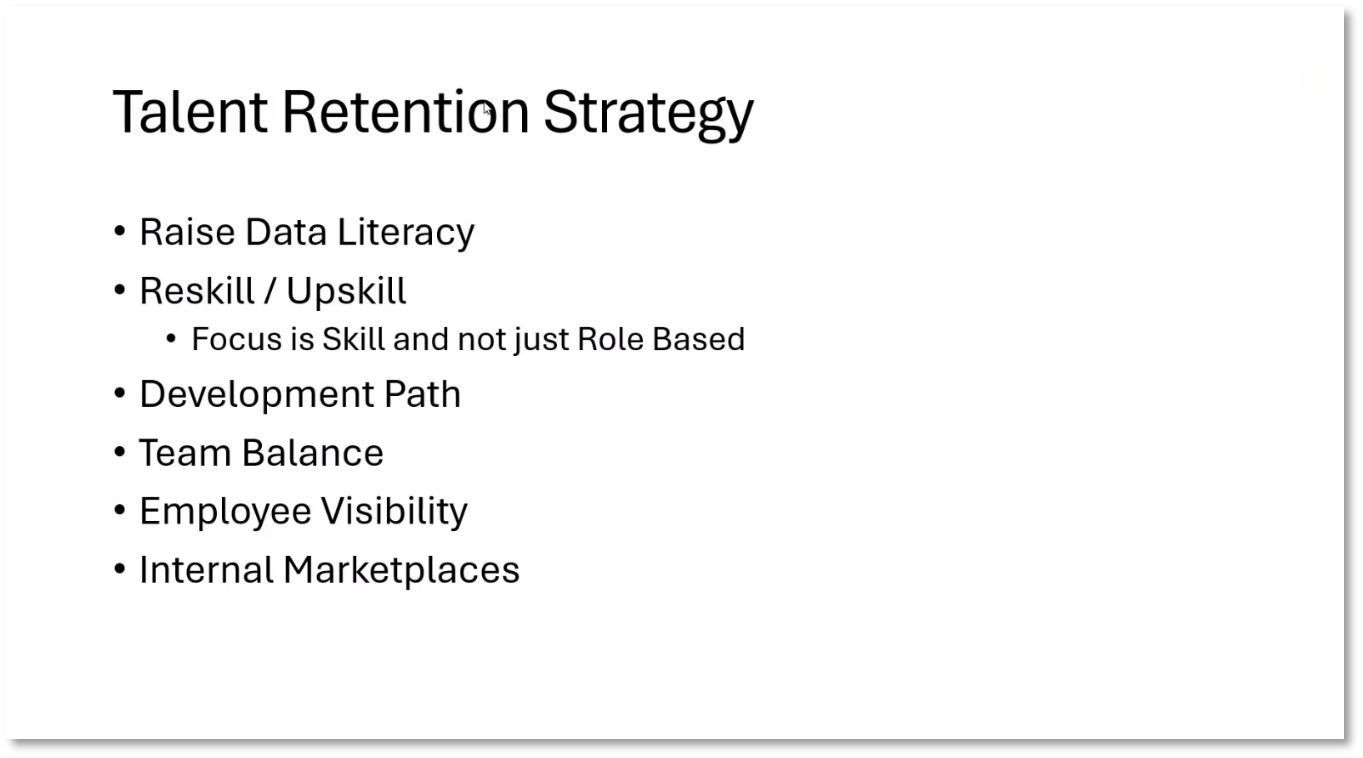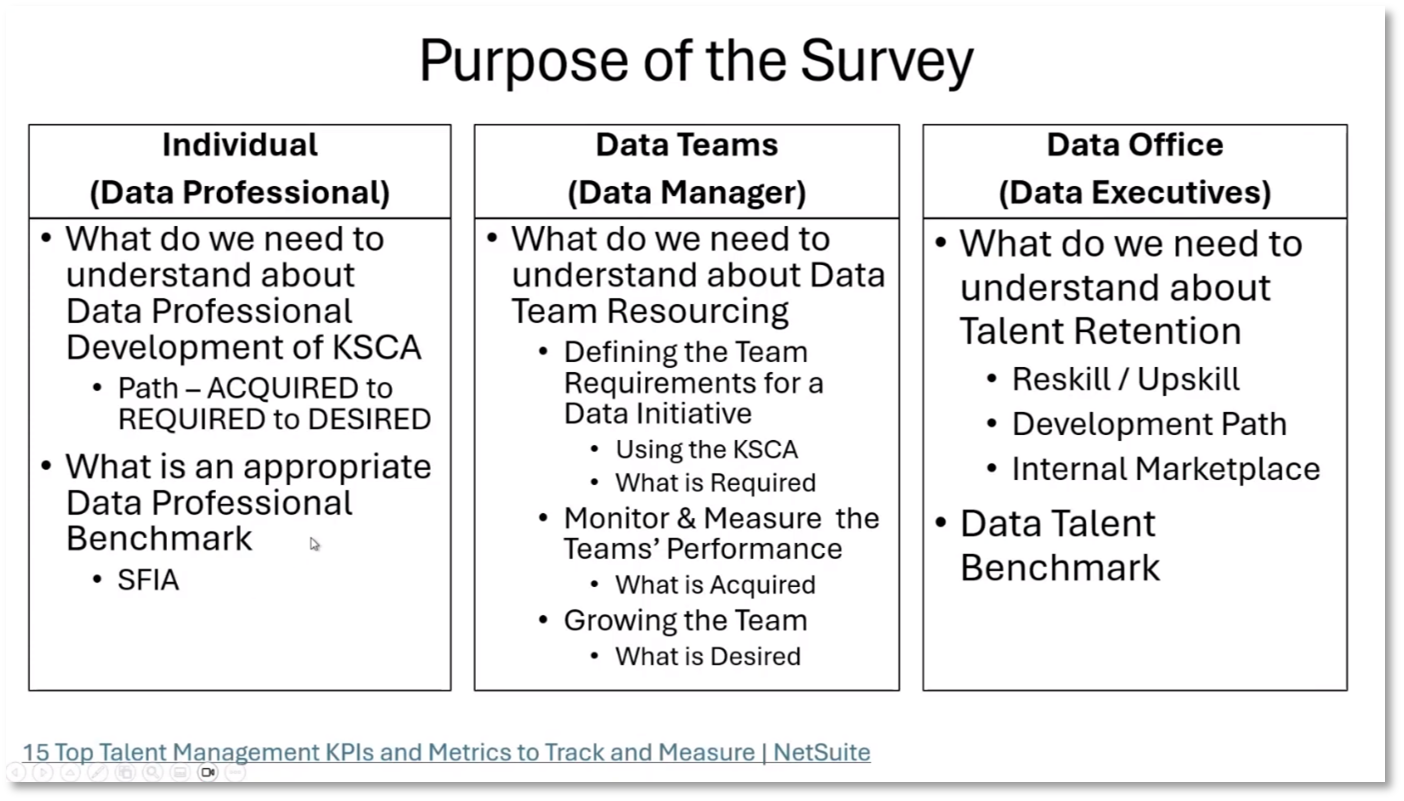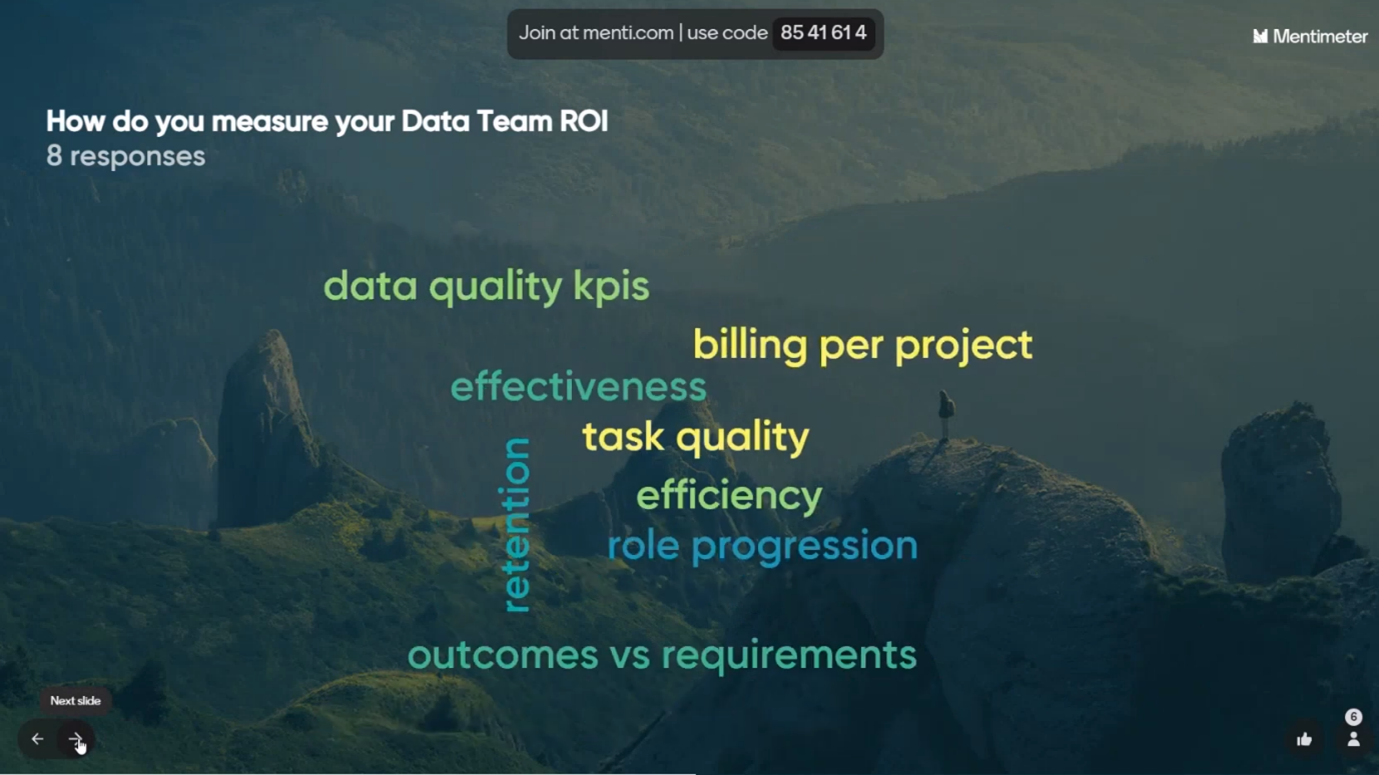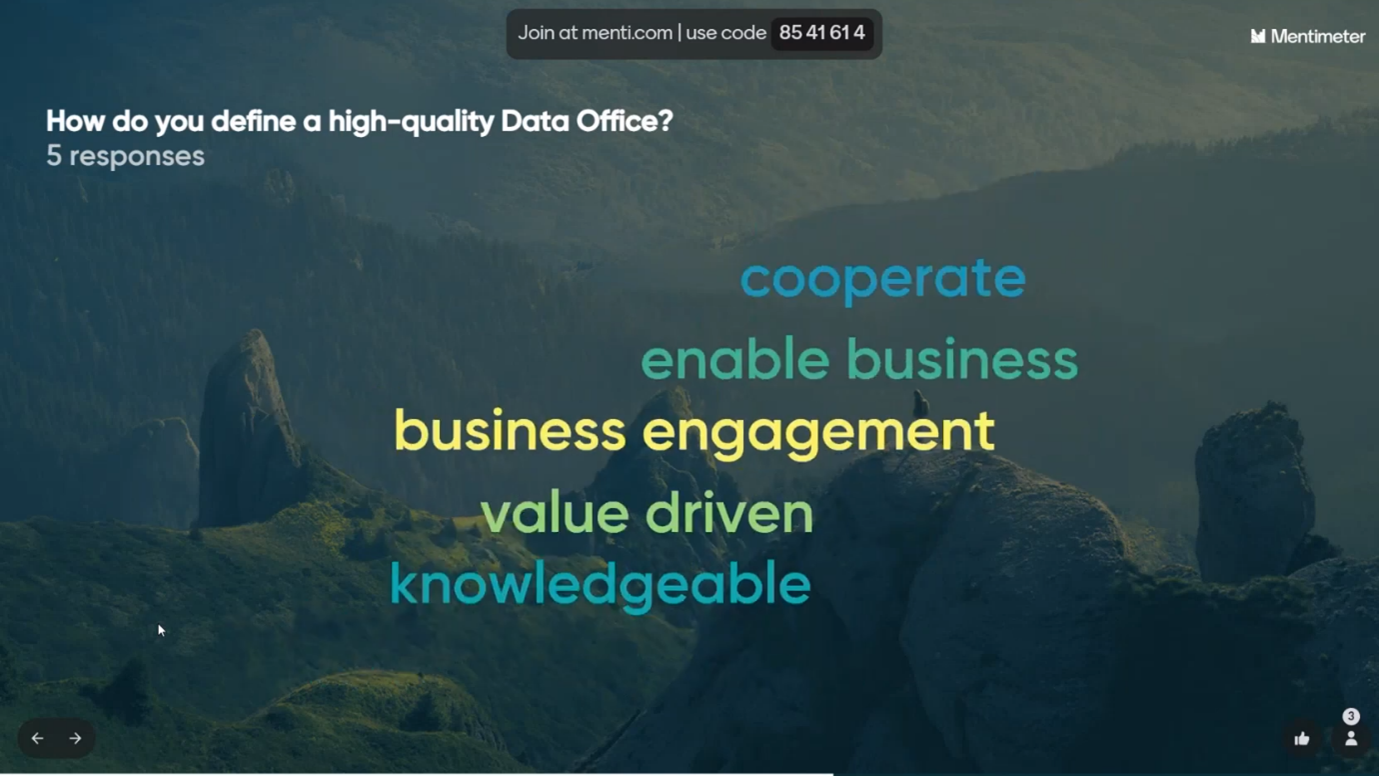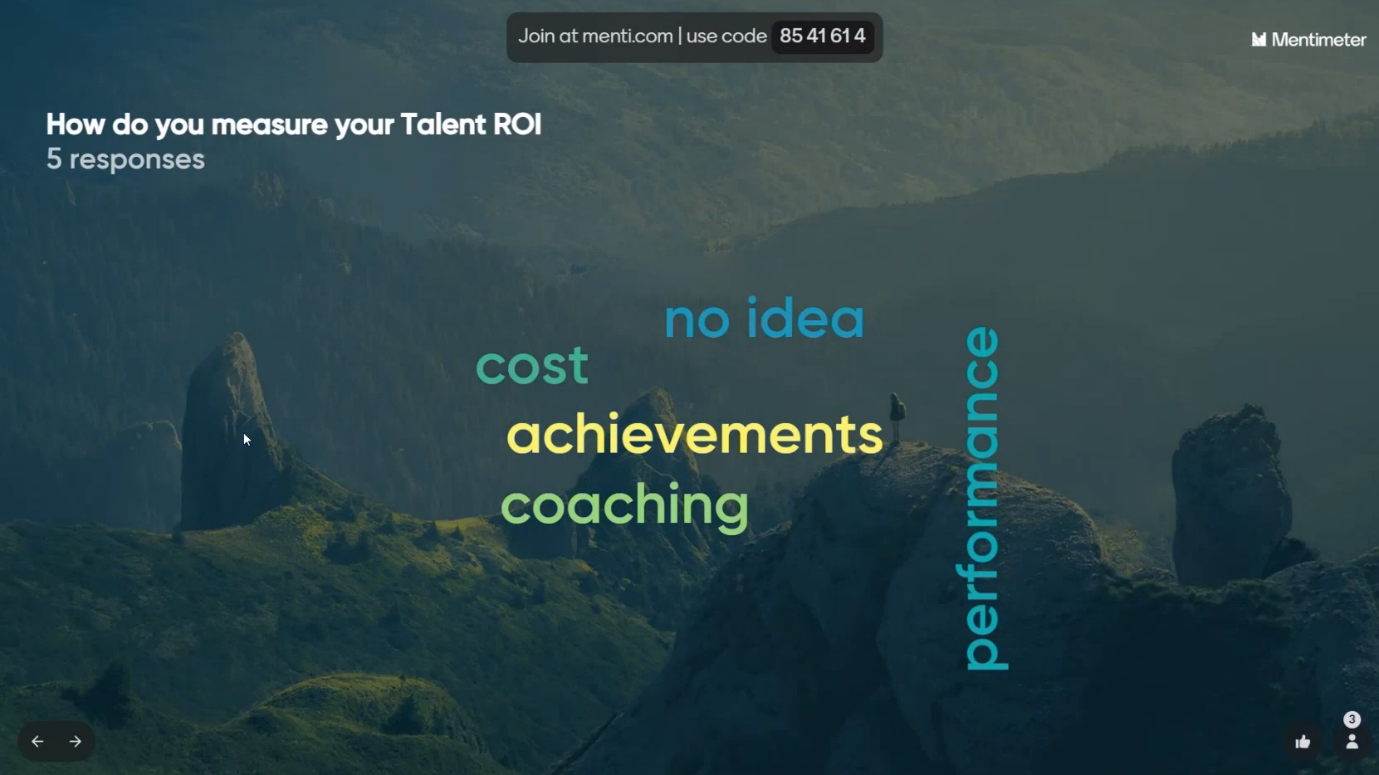Data Career Path Strategy for Data Managers
Executive Summary
Data Career Path Strategy for Data Managers outlines the path towards career development and personal growth. Howard Diesel includes a Career assessment, personal testimony, career journey, and leadership skills. The webinar focuses on mastering data management, understanding data as an asset, and developing industry vertical perspectives. Howard also highlights the importance of self-evaluation and professional development, building diversity and inclusivity in the team, and measuring team quality and talent ROI.
Webinar Details
Title: Data Career Path Strategy for Data Managers
Date: 11 March 2024
Presenter: Howard Diesel
Meetup Group: African Data Management Community
Write-up Author: Howard Diesel
Contents
Personal Testimony and Career Journey
Professional Development and Leadership
Career Path and Strengths Assessment
Career Assessment and Development Roadmap
Career Development and Mentoring
Career and Mentorship
Career Development and Mastering Data Management
Specialising in Data Management
Levels of Responsibility and Career Development
Strategic Workforce Planning and Talent Management
Personal Maturity and SFIA Assessments
Building Diversity and Inclusivity in the Team
Importance of Self-Evaluation and Professional Development
Understanding Data as an Asset
Strategy and Data Professional Development
Defining and Measuring Team Quality and Talent ROI
Professional Development and Learning Preferences
Career Development and Industry Vertical Perspective
Personal Testimony and Career Journey
Howard Diesel notes that he will share a personal testimony about his career journey, including challenges in transitioning from technical expertise to communication with executives. Although he initially aimed to work for IBM, he started his own business and notes his challenge with learning to communicate effectively with executives. Howard shares that his experience highlights the importance of understanding the audience's needs and effectively communicating relevant information to achieve career success.
Figure 1 Data Management Archetypes - Personal Journey
Professional Development and Leadership
Howard notes that CEOs and executives are not interested in technical details. He recommends working with management consulting firms like KPMG and PWC to learn how to engage with executives effectively. Howard shares that his new direction is to become a thought leader and mentor in smaller, technically strong companies. He emphasises the importance of understanding one's career path and mentions that they initially wanted to become a manager or executive.
Career Path and Strengths Assessment
An example of a participant uncertain about their desired career level and what excites them is shared. Howard suggests using the thinking styles and strength finders to determine their best path. Although there is no wrong path, challenges and additional skills may be necessary to be successful. Therefore, focusing on building strengths and finding people to complement them is a successful approach. It is crucial to consider the reasons for pursuing a certain position and if it complements one's strengths. Making informed decisions early in one's career is important for reaching the desired path.
Figure 2 Data Career Strategy Playbook
Career Assessment and Development Roadmap
Howard notes that it is important to assess your career situation, evaluate your knowledge and skills acquired over the past five years, and identify the skills and competencies needed to reach your desired position. He shares the importance of distinguishing between acquired and required skills to consider the risks to the company for lacking required skills. Work with your manager to develop a roadmap for acquiring the required skills and determine your desired career path. Communicate your aspirations with management and collaborate with the organisation to plan your learning and development roadmap, aligning with your desired career path.
Career Development and Mentoring
Assisting graduates in achieving their career goals involves communicating their aspirations, constant mentoring and guidance, and identifying focus areas. Howard emphasises that asking questions and seeking guidance is crucial for career development. He acknowledges the sensitivity of career development and encourages open discussion and questions, highlighting the importance of seeking advice and guidance for decision-making and progress monitoring.
Figure 3 Career Development and Mentoring - What can you do to encourage ownership of professional development
Career and Mentorship
Howard mentions his father, a professional engineer, who stressed the importance of education and high academic expectations. After discovering a passion for computer science in grade 10, Howard initially struggled but eventually excelled and graduated with distinction. Howard’s father's advice to focus on technical skills before transitioning into management made his journey in the data field challenging, as he felt he lacked the skills necessary to conduct himself as an entrepreneur. Howard mentions a mentor, Myles Sinclair, as providing instrumental support in improving his communication with executives and recognising the importance of having a mentor or advisor for guidance and support.
Career Development and Mastering Data Management
The importance of open discussions to gain different perspectives, the benefits of “angry walking” sessions in Riyadh for career discussions, and the significance of mastering data management are mentioned. Howard sheds light on the unknown data space career paths and opportunities for individuals and how data science and engineering roots can lead to potential career paths within master data management. Lastly, he suggests exploring options for career advancement and understanding data modelling through deep questions and the DMBoK.
Specialising in Data Management
Howard highlights the importance of understanding all areas of data management before choosing a specialisation. They discussed the 16 chapters of the DMBoK (Data Management Body of Knowledge). They shared their experience of discovering a passion for master data and data quality after initially focusing on BI. Additionally, the speaker mentioned the SFIA, which outlines levels of progress and responsibilities for data management professionals.
Figure 4 Data Management Organisation & Role Expectations Using SFIA
Levels of Responsibility and Career Development
The levels of responsibility in organisations range from following to setting strategy. People managers can progress through the stages of service delivery, practice definition, management, policy execution, individual contributions, learning, practising, and mastering. Leadership paths include professional, specialist, thought leader, management, and executive roles. There are different paths for different roles and directions, as well as personal activities and breakdowns of work. A skills framework describes skills rather than roles, and each organisation defines roles and creates job profiles based on the skills framework. Generic attributes are softer skills. The career development flow for data scientists should include assessing personal growth and considering alternative organisations if necessary.
Figure 5 What does SFIA describe?
Figure 6 Workplace responsibilities and skills
Figure 7 Illustration of SFIA levels in the workplace
Figure 8 Illustration of SFIA levels in the workplace - Role levels
Figure 9 SFIA skills cover a wide - and evolving - range of professional activities
Figure 10 SFIA Professional skills
Figure 11 Professional skills and generic attributes work together
Figure 12 Career paths and professional development
Strategic Workforce Planning and Talent Management
Professional growth requires generic attributes such as autonomy, decision-making, business skills, communication, and leadership. The Power BI tool is used to build job profiles for the Chief Data Officer (CDO) department, encompassing strategic planning, information management, financial management, and organisational capability development. Data strategy is essential to address challenges with data, people, and talent retention strategies, with a focus on diversity and retention strategies. The talent strategy, on the other hand, involves attracting and retaining the right people, setting up marketplaces, and measuring Return on Investment (ROI) metrics such as internal promotion rates, employee distribution, and talent cost performance. Calculating the return on investment on talent is crucial, with the performance divided by cost, emphasising the importance of ensuring the company gets value from employees' work. To assess the organisation's workforce, professionals should utilise thinking styles while assessing if their performance exceeds the cost and if the company is getting value from their work.
Figure 13 Five generic attributes.
Figure 14 Five generic attributes describe...
Figure 15 Skills, job profiles and certifications
Figure 16 Business Data Vision Dictates Strategy Composition (one become three)
Figure 17 Long-term fix: How to attract & retain talent for D&A Team
Figure 18 Talent Retention Strategy
Figure 19 How do I measure my Talent Management Strategy
Personal Maturity and SFIA Assessments
Assessing personal maturity and SFIA helps identify individuals' strengths and areas of improvement. Howard notes that managers must be able to determine the right role for individuals based on their strengths, and diversity in skills is crucial for filling different areas within the organisation. The "Data Superhero Community Project" showcases individuals' skills, and matching individuals with complementary skills is essential for effective collaboration. Understanding individuals' working styles is also crucial for teamwork and collaboration, particularly when pairing supportive individuals with strong executing skills alongside those with influencing and strategic thinking abilities.
Figure 20 Organisation Capability View
Figure 21 Top 10 Strengths Analysis
Figure 22 Community project - Data Superheroes
Building Diversity and Inclusivity in the Team
The project aims to promote diversity and inclusivity within teams by creating superhero cards for individuals. To achieve this, data is being collected to understand data professionals' knowledge, skills, competencies, and attitudes. Professionals are encouraged to log their work evidence for their data maturity assessment as part of this effort. Those pursuing CDMP certification should start building a portfolio of evidence, including at least ten years of experience, as minimum requirements. This evidence can help professionals make informed decisions about new job opportunities or initiatives.
Figure 23 Purpose of the Survey
Importance of Self-Evaluation and Professional Development
Self-evaluation is crucial in determining one's passion and finding fulfilling work. To achieve professional growth and determine the desired career path, it is essential to develop knowledge, competencies, and attributes (KCA). Understanding the elements of one's professional journey is necessary to deliver value to stakeholders and the audience. It's crucial to know the appropriate data professional benchmark and the seven different proficiency levels to deliver well on an initiative and respond to Request for Proposals (RFP). Identifying the team and resources required to deliver on an initiative is essential for defining the team's role in terms of the initiative. Paul notes that attending webinars and hearing passionate speakers can help understand and realise the value of data and see data as an asset.
Understanding Data as an Asset
Data should be viewed as a valuable asset, and it is critical to understand the professionalism and delivery of the team responsible for managing it. The value of a data office and its team lies in producing better data assets, which can enable business initiatives, use cases, and value propositions. It is important to monitor and measure the value of data assets using different strategies, such as offensive and defensive strategies, which require different team positioning and measurements. However, there is often tension between desired and required directions, and it is important to reposition and adjust as needed. Internal promotion and development of the team are crucial for achieving success in managing data assets.
Strategy and Data Professional Development
During a recent conference, a speaker emphasised the importance of utilising data to allocate seats strategically in the bus environment. Data executives can use this information to inform load roll-ups, upskilled development, and return on investment strategies. The audience is invited to participate in a Menti.com session using a specific code, and Paul offered to hold 1-on-1 or group sessions for further discussion. The audience is asked about defining a high-quality professional and measuring data professional Return on Investment (ROI). Paul references a LinkedIn conversation about the latter, planning to frame relevant questions and metrics in the coming weeks.
Figure 24 Data Career Survey Questions
Defining and Measuring Team Quality and Talent ROI
In building a high-quality team, balancing team strengths and finding the appropriate people for the right positions is important. Responsiveness and cohesiveness are key components of a successful team. ROI for data teams and talent should be discussed and measured. The relevance and value of a high-quality data office cannot be overstated. Job profiles are crucial in professional development and should be appropriate to individual capabilities. Certification is valuable, specifically DAMA (DMBoK, version 2) and its learning path. Still, there is a need for clear data on individuals who have taken certification exams, and there is a lack of access to this data.
Figure 25 How do you define a high-quality professional?
Figure 26 How do you define a high-quality team
Figure 27 How do you measure your Data Team ROI
Figure 28 How do you define a high-quality Data Office
Figure 29 How do you measure your Talent ROI
Professional Development and Learning Preferences
Having a provider with a mentoring and teaching attitude is important, even at an advisory level. Personalisation in professional development and understanding what one doesn't know and the potential of what hasn't been done is crucial. The ability to perceive the distance of the valley and the other peaks in professional development and learning opportunities is significant. Implementing awareness, training, and communication plans can help individuals take initiatives into business as usual.
Figure 30 How valuable to you perceive certification?
Figure 31 How do you prefer to learn and receive information (e.g. online courses, in-person workshops, etc.)?
Career Development and Industry Vertical Perspective
During the end of the webinar, a participant shares their interest in developing a career in the health industry, and data thought leadership. The group discusses the importance of getting involved in working groups and communities relevant to the health industry to enhance learning and expertise.
If you would like to join the discussion, please visit our community platform, the Data Professional Expedition.
Additionally, if you would like to be a guest speaker on a future webinar, kindly contact Debbie (social@modelwaresystems.com)
Don’t forget to join our exciting LinkedIn and Meetup data communities not to miss out!



